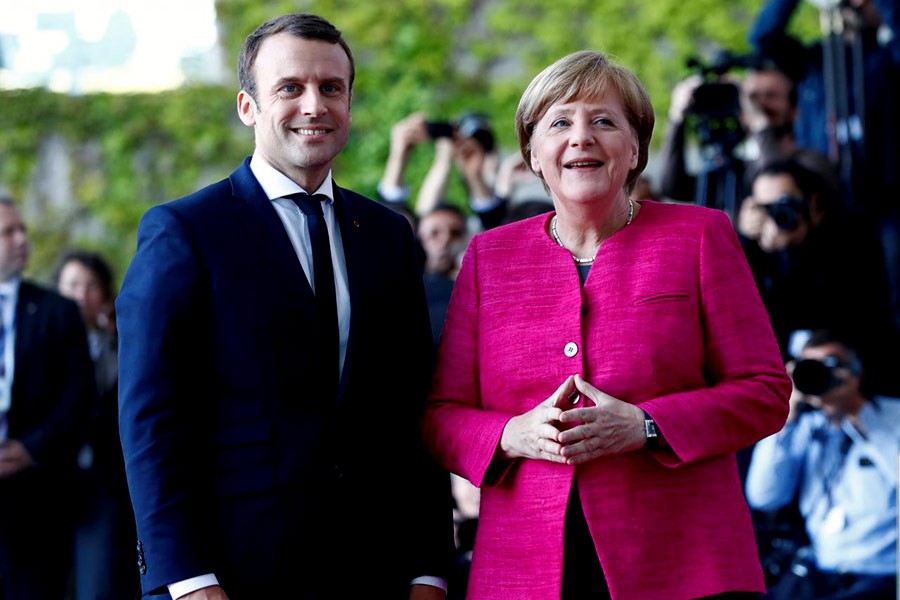There's a refreshing youthfulness in Mr. Emmanuel Macron. As refreshing is that the accompanying brashness is visible in its absence. The French leader has reacted in a unique way to comparisons of he being the new version of Tony Blair; the face of American policy. It takes guts to stand in front of the US Congress and critique the 'America First' policy of Mr. Donald Trump. He was equivocal in his statesmanship. The policy threatens to endanger the World Order that was cobbled together after the Second World War. This after the hugs, embraces, dandruff-flicking events of the last two days.
Mr. Macron hasn't shied away from admitting that he had probably failed to get Mr. Trump not to renege on the Iran nuclear deal. Though France and the UK had fired the missiles to destroy alleged chemical weapons installations in Syria, thereby exposing the countries to retaliation, Mr. Macron took the middle path of 'renegotiation' rather than a U-turn on Iran. These two events signal something far more significant and that which had been suggested in these columns. Europe's leadership is changing batons.
Ms. Merkel has been eerily silent on most international issues from Syria to North Korea. Ever since she returned post-haste from a visit abroad, the allies that had said they wouldn't , did join hands to form a government and take the jewel in the crown position of Finance Minister. Since then we have heard little about Greece's crippling debt and how it was paying off debt. It's all the more significant given Mr.Macron was given somewhat of a ticking off by the then German Finance Minister for having made overtures about European Union (EU) reform.He has waded in to the quagmire of protracted opposition of French labour Unions uneasy with his reforms that seek to make it easier for employers to hire and fire and raise the working hours and retirement age ceilings. Without these crucial reforms French businesses aren't in the mood for further investments.
In a way his approach, though a right-fit for France, goes opposite to what's happening in Germany and Scandinavia. German steel workers have negotiated a twenty-hour week to spend time with young families for a two-year period. Scandinavia has also reduced work hours in order for employees to enjoy leisure time. The concept of doing away with off-hour official mail is gaining purchase. The perennial gap between protectionism and cooperation holds as true for France as it does Europe and the United States. The German model by which wage increases are gradual and sustained has worked very well. Keeping a close watch on consumer credit has also worked albeit in a society that is frugal by tradition.From football to engineering German precision is much admired notwithstanding the expensive hiccups of the automotive giants Volkswagen and BMW.Till today little is known too, about how Deutsche Bank came up with the billion dollar fines imposed by the US especially with Ms. Merkel having initially rejected the idea of government prop-up.
The German ambition for European leadership stems from the creation of a superstate with its own army and a loose confederated economy. The British have always been suspicious of this though a population probably not told the whole truth, voted to leave the EU. There are signs that Theresa May is trying to hold on to a favourable trade regime. Trickles of information point to the inevitable that most countries prefer the EU trading terms rather than single country deals. Trade globalisation has tended to lean towards blocs, rather than knotty individual deals in general.
Ms. Merkel is a brilliant politician with courage to admit to mistakes. She won't be quiet for too long but in the meantime Mr. Macron May be forced by events than plans to emerge in a new avatar.He most definitely wants the UK to say within the EU and let's not forget it was France that had been the stumbling block to UKs admission in the first place.


